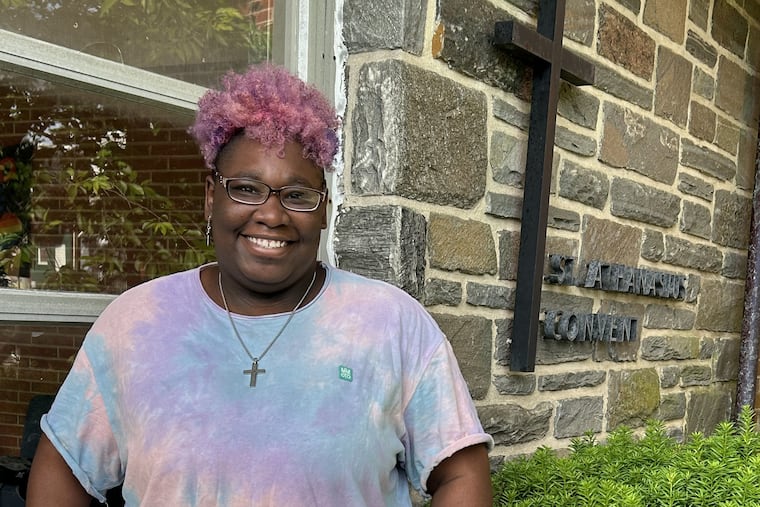Many college students struggle with housing insecurity. We must do more to support them.
St. Joseph's House provides housing for college students with housing insecurity, but universities and the community need to do more.

In the next few days, close to 300,000 students will arrive on Philadelphia-area college campuses to begin or continue their studies. Many are eagerly packing the family car with a mini-fridge and clothing bins, while others are facing the new school year with trepidation. The location of their first class might be known, but where they will sleep that first night is not.
My initial encounter with a college student experiencing homelessness occurred when I was teaching at a local university. A student tearfully lingered after the final exam period. The dorms closed later that day, and the person they planned to crash with over break was no longer amenable to the arrangement. There was no family to fall back on, and a recent cut in shifts at work quickly diminished savings that could be used for housing, especially costly housing in proximity to the university.
» READ MORE: Hungry, homeless and in college | Editorial
As I encountered more young people in similar predicaments each semester, it became clear that the affordable housing crisis in our region was impacting students already struggling with the rising costs of higher education. Those with poor credit or no access to loan cosigners — such as students aging out of foster care or international students — are particularly vulnerable. Research finds that first-generation students, Black, Indigenous, and people of color (BIPOC) and LGBTQ students, victims of domestic violence, and those with complex mental health diagnoses are most at risk for homelessness.
And this is not a small, isolated group. Study results released last year estimated that “more than 1.5 million students” were experiencing homelessness — that’s 8% of undergraduate students across the United States and 5% of graduates. The Free Application for Federal Student Aid (FAFSA) now includes a question to determine if an applicant is “unaccompanied and either homeless or self-supporting and at risk of being homeless.” The U.S. Department of Education defines being at risk as “lacking fixed, regular, and adequate housing.”
Like my students, these young adults might be temporarily living with a friend, in a shelter, or in their car — changing parking places to avoid tickets and showering at the campus gym.
While the data tell us that having a college degree will increase your earnings over a lifetime and lead to better quality-of-life outcomes, what happens if that trajectory is interrupted on the road to graduation?
One practical response to this crisis is St. Joseph’s House in Northwest Philadelphia, where I work as a program director. As part of a broader network of supportive housing operated by Depaul USA, the Dax Program assists eligible young adults ages 18-24 with up to two years of low-cost dorm-style housing so they can continue their studies. Students from a range of local universities work, go to class, and share housekeeping responsibilities, as well as participate in community meals, social activities, and educational programming.
» READ MORE: This Philly nonprofit planned to offer housing to homeless college students. Then the pandemic hit. | Helen Ubiñas
Referrals to St. Joseph’s House are made by university partners, which highlights the critical need for attentive and engaged collaborators. Staff in La Salle University’s Explorers CARE office and the Single Stop at Community College of Philadelphia have been outstanding allies in this work. Unfortunately, lean budgets and staff turnover have led to gaps in the referral networks elsewhere.
As the new academic year begins, I urge faculty and administrators to be proactive in supporting students who may be struggling with housing insecurity. Identify the lead contact on your campus for referrals to social services. Be sure that person or office knows about city-funded emergency housing intake centers and supportive housing like St. Joseph’s House. Post the contact information for your campus resource person by the campus food pantry, gym, and library — common places students who are housing insecure will frequent.
By working together and advocating for these young adults, we can help ensure their educational journey is not derailed by homelessness.
Sister Bethany Welch is the program director of St. Joseph’s House in Philadelphia and the associate director of Depaul USA.